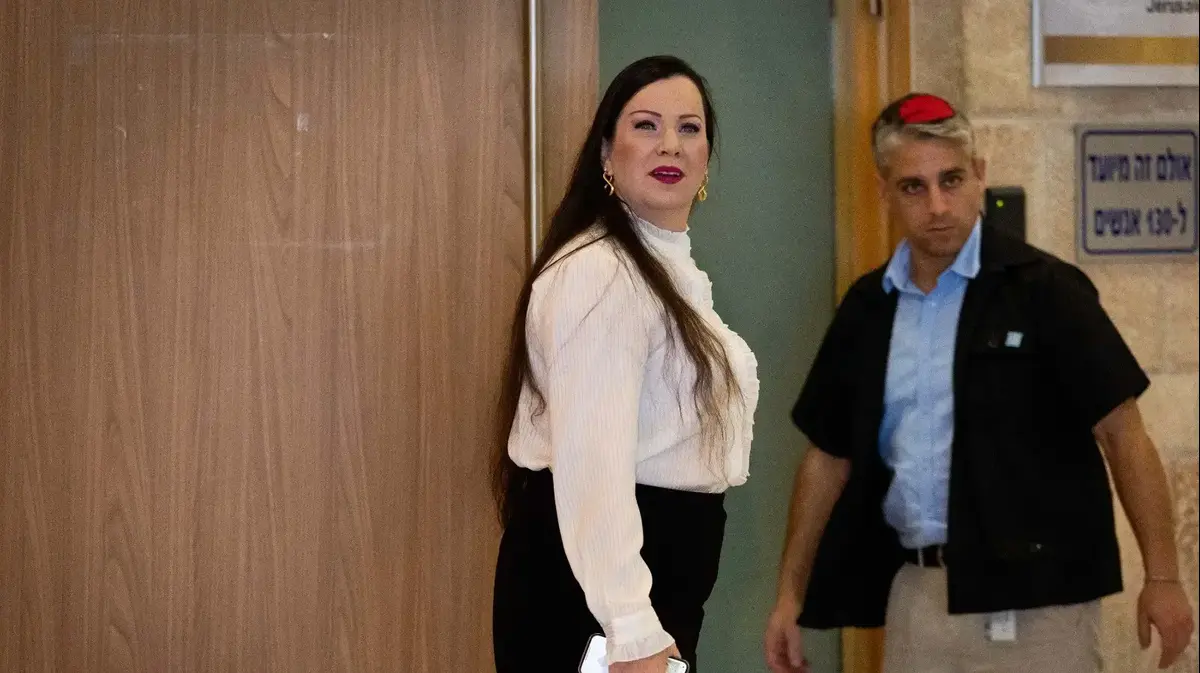The Constitutional Court is preparing to block the Government's intention to appoint two of the magistrates of the high court without waiting for the General Council of the Judiciary to choose the two that it must appoint in the next renewal of the maximum interpreter of the Magna Carta .
On June 12, the mandate of four of the 12 members of the Constitutional Court expires, whose renewal corresponds to the Executive (two) and the governing body of the judges (two others).
Preventing this renewal would extend the conservative majority of the high court.
More information
The Government is considering appointing two magistrates of the Constitutional Court even if the Judicial Power is not renewed
The Constitution establishes that the magistrates are renewed by thirds (four magistrates) every three years.
The four magistrates that according to the Magna Carta correspond to Congress were renewed on November 17.
Before, in March 2017, the four magistrates proposed by the Senate entered.
On June 12, the third corresponding to the Government (two) and the Council of the Judicial Power (two) must be renewed.
However, the fact that the governing body of the judges has been prohibited by law since March 2021 from making appointments while in office — a situation that has dragged on since December 2018 — makes it difficult for this third to be fully renewed in the manner established by the Constitution. .
The renewal, if carried out, is very relevant because the conservative sector would lose the absolute majority, given that three of the four new magistrates would correspond to the progressive sector.
And this is happening at a time when the court of guarantees has to rule on four relevant laws from an ideological point of view: the law on abortion deadlines (pending for 12 years), the euthanasia law, the so-called
Celáa law ,
Education, and the reform of the General Council of the Judiciary that prevents this body from making discretionary appointments while in office, the rule that is at the bottom of this controversy.
The Executive of Pedro Sánchez is willing to appoint its two magistrates as soon as the Andalusian elections are held, on June 19.
Never before in the history of the Constitutional Court has there been a similar case, in which the Government cannot appoint the two magistrates of its quota because the General Council of the Judiciary is legally unable to appoint its own.
This legal entanglement —the possibility of carrying out a partial renewal of the magistrates— must be resolved by the Constitutional Court itself.
The response to this Government decision, according to Constitutional magistrates, could be the convocation of a plenary session of the guarantee body, dominated by the conservative sector, which would prevent the access of the new magistrates and block the renewal again, as it has been doing for three years the PP in the General Council of the Judiciary.
'Pax trevijana'
The president of the Constitutional Court, Pedro González-Trevijano, had promised a period of
pax Romana
—or
pax trevijana,
as some magistrates call it—, which until now has been fulfilled.
Since the last renewal, in November, seven months of relative calm have passed, focused on closing the appeals against the
procés
ruling .
There was little risk in that.
Unanimity or majorities were assured.
But once that drawer was emptied, other issues had to be addressed and the cracks of division have reappeared on top of them.
Conservatives and progressives try not to get into a fight, as a year ago when the first ruling against the state of alarm to combat the pandemic, which annulled home confinement, was about to block the work of the Constitutional Court.
Now diplomacy prevails.
Everything is thoroughly debated, and it is difficult to obtain concessions.
Thus, the latest sentences have been resolved by seven votes to four or eight votes to three.
No one is certain about how the conflict between the Government and the Constitutional Court with a conservative majority and with a third of the plenary expired would end.
There is no unanimous opinion on the legality of the Government's appointments, if they are not made at the same time as the two that should be carried out by the General Council of the Judiciary.
The law of the Constitutional Court considers it mandatory that the magistrates meet in plenary session to give the placet to the new incorporations.
In principle, it is a procedure.
It is a matter of verifying that those appointed are lawyers, and of verifying the accreditation of their solvency, based on their qualifications and career.
But both conservatives and progressives admit that in this case they would consider examining something else, and that is whether the requirement that they arrive in accordance with the constitutional provision that each renewal of the court will be carried out by thirds is met.
For the conservative sector, this implies that the new magistrates who will be at the gates of the court should be four, and not just two, those proposed by the Government, which should wait until the Judicial Power Council could appoint the other two .
It would be possible that the Constitutional itself considered that the renewal of it, thus raised, is not valid.
At the moment, no strategy of resistance has been prepared in the face of this possibility, but there are voices, which are speaking louder and clearer each time, that defend the need to stand up to this attempt by the Government to force the renewal and that for this it would be necessary to refusing to give free rein to new recruits.
With that decision the renewal of the Constitutional Court would be blocked, which would continue to dictate sentences on very important laws with an absolute conservative and expired majority.
Sources from the progressive sector point out that, in this case, the first thing that should be decided is who makes up the plenary.
In other words, if the Government appoints two magistrates, who would have to replace González-Trevijano himself, and the magistrate Antonio Narváez —both conservatives, appointed by the previous Executive of Mariano Rajoy—, the first thing that would have to be decided is whether the outgoing they must leave the plenary, since they already have substitutes, and, therefore, not participate in the decision of whether or not to grant free passage to the entrants.
That would leave a plenary session of five progressive magistrates against five conservatives, although a member of this bloc has not attended for months due to illness.
The question is even raised as to whether the Government could recuse Trevijano and Narváez for said deliberation, even though that plenary session was not strictly a procedural act.
Everyone, conservatives and progressives on the court, say they would not want to be immersed in that situation, because it would mean a very serious institutional crisis.
The conservative sector understands that said crisis would respond to an attempt by the Government to force the entry of its two designated for the institution through the false door.
And in the progressive media it is replicated that the real abuse has been going on for years, with the blockade by the PP of the renewal of the Council of the Judiciary, since it cannot make appointments in the highest organs of the leadership.
The legal solution could come from the hand of the Constitutional itself, if it resolves soon the appeals presented by the PP and Vox against the prohibition of making appointments by a Council of the Judicial Power with the mandate expired.
A sentence that declared this legal reform unconstitutional and returned the power to make appointments to the Council would mean a defeat for the PSOE, which promoted said reform, but at the same time it would clear the way for the Government to solve the problem of the renewal of the Constitutional Law.
The speakers of these rulings are the magistrates of the progressive bloc María Luisa Balaguer and Juan Antonio Xiol.
At the moment, there is no draft ruling on these resources.
Exclusive content for subscribers
read without limits
subscribe
I'm already a subscriber

/cloudfront-eu-central-1.images.arcpublishing.com/prisa/UZ63SKDMAFGFHOLYXVTHCDW6WI.jpg)


/cloudfront-eu-central-1.images.arcpublishing.com/prisa/OTWB63YVDRNKAQLEH7S4FTFBNI.jpg)




